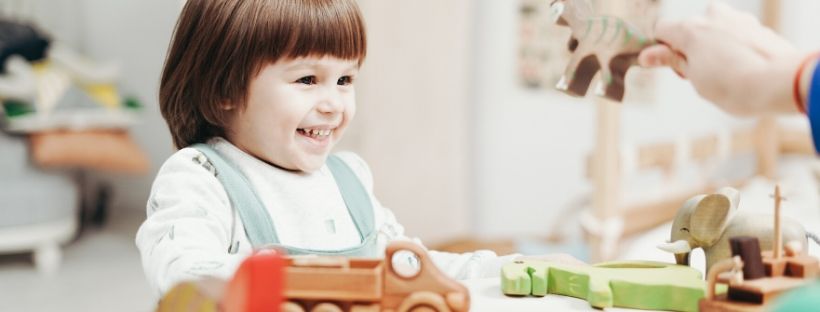In the beginning of the new year it is good to take a second and go back to the basics. What is important to remember when working in the field of Early Childhood Education?

Early childhood is defined as the period from birth to compulsory primary school age, which varies across countries. It is time of remarkable growth and important milestones in brain development. During this stage, children are highly influenced by the environment and the people that surround them. (Unesco 2020)
What is early childhood care and education?
Early childhood care and education (ECCE) is much more than preparation for primary school. ECCE aims at the holistic development of a child’s social, emotional, cognitive and physical skills in order to build a stable and broad foundation for lifelong learning and overall wellbeing. ECCE has the possibility to educate caring, capable and responsible future citizens. (Unesco 2020)
Early childhood care and education means all forms of education for children under school-age. The guardians of the child decide whether or not their child participates in organized care or if they take care of their child at home.
There are public and private childcare centers. Some childcare centers follow a certain pedagogy (eg. Reggio Emilia, Steiner, Montessori) or have emphasis on a certain topic (eg. science, art, music). Some childcare centers are large while others very small. Despite the size or emphasis, each center is unique and has their own working culture that is formed by the manager and staff.
What is Finnish Early Childhood Education?
How and why are children divided in groups?
It is easier for most children to act, play, focus and learn when they can spend time in smaller groups. The groups of children in ECCE centers may be formed in different ways, for example, according to the age of children, sibling's relationships or needs for support. The groups must be pedagogically appropriate, and provisions on staffing and maximum group sizes must be considered when forming the groups.
What is a curriculum?
The local curriculum for early childhood education and care obligates to assess, renew and develop the culture of ECCE. When the working and operating methods are evaluated it is essential to consider how they will best support children’s growth, development and learning. The starting point for all decisions happening in the child care center, must connect with the goals of the local curriculum. It is also always important to consider the child’s best interests. (Finnish National Agency for Education 2020)
It is beneficial for learning if each child has an individual curriculum. When assessing a child's individual early childhood education and care plan, the focus should be targeted on how the activities are arranged and how pedagogy is implemented. The child’s individual curriculum should be completed in the beginning of the new school year and evaluated together with the guardians at least once a term. (Finnish National Agency for Education 2020).
How to improve?
The quality of ECCE should be improved through systematic evaluation by the manager, staff, families and administrative professionals. Among other things, ECCE providers must evaluate the local curricula and the implementation of it regularly. Evaluation helps to make the strengths and developmental needs of ECCE visible. And lastly, do not forget to ask feedback from children: “If you want the truth, ask a child.” ;)
PS If you don't have a child nearby, you can learn from articles on our Resources page.
.png)
.png)